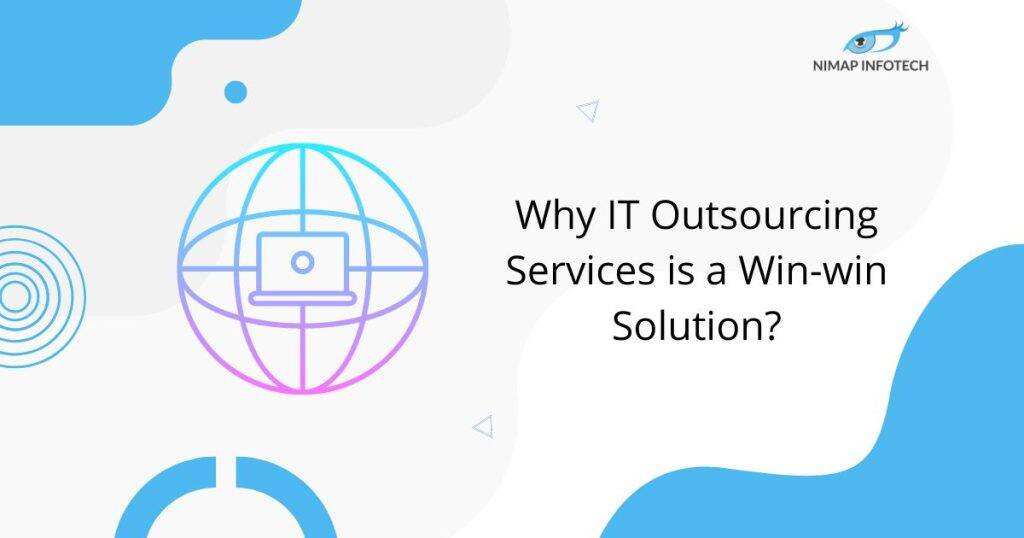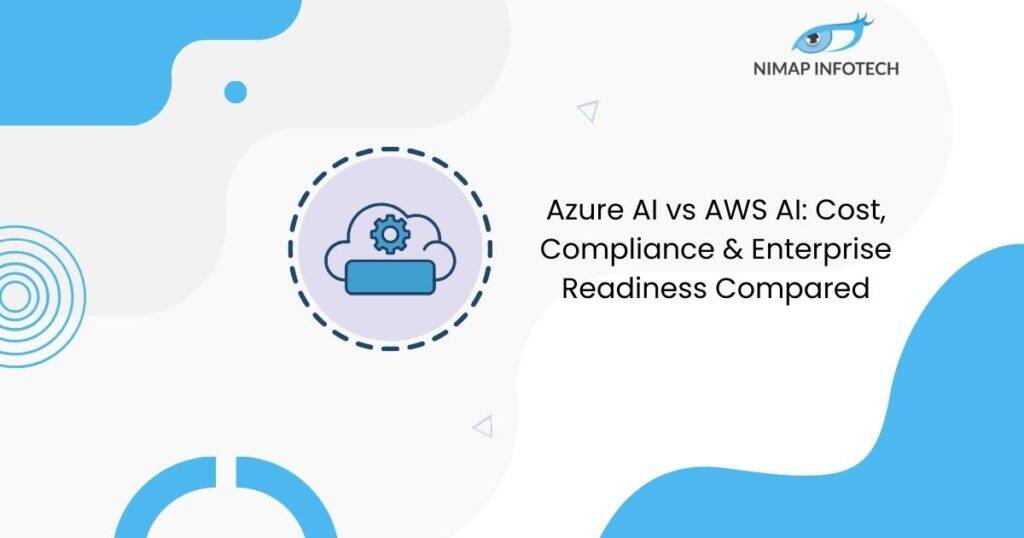Businesses that want to succeed in the digital age must be adaptable, innovative, and customer-focused. They must be willing to take risks and quickly adjust to changing market conditions. They must also be able to collaborate with internal and external partners effectively. Businesses that adopt digital transformation can better position themselves for success in today’s fast-paced, ever-changing business environment. There is a lot more to learn, and our blog will help you understand how technology is growing and how it impacts business planning.
What is a Digital Transformation Strategy?
The application of digital technologies and solutions to improve operational tasks, productivity, teamwork, and customer satisfaction is known as “digital transformation.”
A digital transformation strategy is a road map defining the steps a company must take to use the latest technology for that aim. It is the foundation for reforming a company to use digital technology to achieve its objectives and boost its bottom line.
Key Components of Digital Transformation –
Digital transformation is the systematic incorporation of digital technology, processes, and strategies into all parts of an organization. Technology profoundly alters the way businesses function and provide services to their clients. It entails a comprehensive rethinking and reorganization of business models, processes, and culture, compared to simply implementing separate digital tools.
Process Optimization:
- Digital transformation in businesses enhances process optimization, improves efficiency, and reduces operating expenses.
- Using Robotic Process Automation (RPA) and artificial intelligence, firms may automate regular processes.
- Examine workflows to find repeated, time-consuming operations.
- Automate routine jobs by automating data entry, approvals, and other tasks, you can free up human resources for more valuable work.
- Streamline procedures to reduce complexity and increase efficiency.
Also Read: SaaS Development for Smart Cities: Digital Transformation For a Better Future
Technology Integration:
- Incorporating technologies like AI and ML enables enterprises to gather, process, and analyze vast data instantly.
- Their powerful analytics generate meaningful insights from data and assist in decision-making.
- Cloud computing services provide a scalable and adaptable infrastructure that can adapt to changing business needs, allowing firms to scale up or down operations in response to market demand and infrastructure availability.
Cultural Shift:
- Cultural shift is an important and often overlooked aspect of digital transformation.
- It requires cultivating a mindset and corporate culture that values change, innovation, and a digital-first strategy.
- Digital transformation fosters strategic risk-taking while also promoting ongoing development and resilience.
- Collaboration platforms, messaging apps, and unified communication solutions let teams interact and collaborate more effectively, particularly in distant or remote work contexts.
- These integrated communication tools ensure that the team collaborates and information flows smoothly throughout the organization.
Importance of Digital Transformation for Modern Business –
Digital transformation strategy for business promotes growth by allowing organizations to adapt, develop, and thrive in an increasingly digital and dynamic corporate environment. Here are a few reasons why digital transformation is vital to business growth.
Analytics and BI:
- By employing predictive analytics, businesses can anticipate trends and customer preferences, crafting effective strategies for future endeavours.
- Key performance indicators (KPIs) and performance dashboards provide real-time visibility into numerous elements of operations, enabling immediate adjustments and continual development.
- Businesses using real-time analytics may respond fast to market developments and make agile decisions, staying ahead of their competitors and adapting to changing customer expectations.
Data-driven Insights:
- Digital transformation has enabled the collection and analysis of vast amounts of data from various sources.
- Advanced analytics can translate this data into meaningful insights, providing decision-makers with a more in-depth understanding of market trends, customer behaviour, and operating performance.
- Businesses can use data to perform market research and analyze client feedback.
- These insights contribute to the creation of innovative products and services that meet the demands and preferences of customers.
Migration and Upgrade of Legacy System:
- Legacy systems are conventional systems that serve as operating systems and require upgrades to keep up with emerging technologies.
- Digital transformation involves creating a complete plan that is aligned with company goals.
- This approach frequently involves plans to update or replace outdated technologies to meet current and future business demands.
Communication Across Multiple Channels:
- In a company, digital transformation guarantees that consumer interactions are integrated and information is seamlessly shared.
- This connection enables a single customer journey, allowing customers to travel smoothly between online and offline channels.
- Businesses can use the medium to acquire a comprehensive perspective of customer interactions, preferences, and behaviours across many channels, allowing for better-informed decision-making.
- Businesses using omnichannel communication via digital transformation set themselves apart in the market.
- This competitive edge can lead to better client acquisition, retention, and overall growth.
- Digital transformation allows companies to swiftly adapt to evolving client demands by enhancing innovation and modifying communication strategies.
Innovation:
- Digital transformation promotes an experimental culture where firms may swiftly test and iterate new ideas, products, and services to discover innovative solutions.
- The integration of emerging technologies like AI, machine learning, IoT, and blockchain fosters innovation, enabling companies to create innovative products, services, and business models.
- This facilitates seamless collaboration with third-party partners, companies, and industries.
- This collaboration develops an open innovation culture, allowing organizations to capitalize on external knowledge, technology, and ideas to drive success.
Adaptability and Agility:
- The technology facilitates the development of a digitization plan for corporate transformation.
- Companies that embrace digital technologies can tailor their strategies, products, and services in real-time.
- Digital tools and technologies are increasingly being utilized to enhance operational efficiency.
- Thanks to operational agility, businesses can scale more successfully, respond to unexpected problems, and navigate stormy times.
Personalization:
- By combining data from several connections, organizations may generate full and integrated consumer profiles.
- This 360-degree vision improves comprehension and allows for customized interactions across channels.
- The integration of data from multiple systems enables a unified view of each consumer, facilitating consistent and personalized communication.
- This customization is more likely to be appealing to customers, resulting in increased engagement and conversions.
- Digital transformation cannot happen in a day it is a continuous journey, not a destination.
- It isn’t about digitally painting over outdated services; it’s about using technology to completely rethink and modernize them.
- Embracing a digital transformation strategy is critical for organizations to remain competitive, inventive, and customer-focused.
Read More: Blockchain Technology Transforming Medical Supply Management
How Can Nimap Infotech Assist in the Digital Transformation Journey?
Flexibility is essential in today’s fast-paced digital environment. Nimap Infotech provides digital transformation services for an agile development approach and a customer-centric strategy. We are at the forefront of developing technologies like AI, machine learning, blockchain, and the Internet of Things. Our team stays abreast of the latest industry trends, ensuring your digital transformation strategy incorporates advanced solutions to stay competitive.
Our top-notch IT outsourcing services cover all aspects from conceptualization to delivery, enabling you to enhance your online presence, streamline operations, and develop innovative applications.
We operate with dedication and commitment, fostering long-term relationships based on trust, transparency, and shared commitment to achieving milestones in your digital transformation journey.
Author
-

With 14+ years in IT and entrepreneurship, I co-founded Nimap Infotech, a digital transformation company that has delivered 1200+ projects and built a team of 400+ engineers. I’ve also led mobile development teams at Accenture India and IBM Apple Garage and developed a network of 7k+ iOS and Android developers. As an Angel Investor, tech advisor, and mentor, I actively engage with the startup ecosystem.
View all posts









